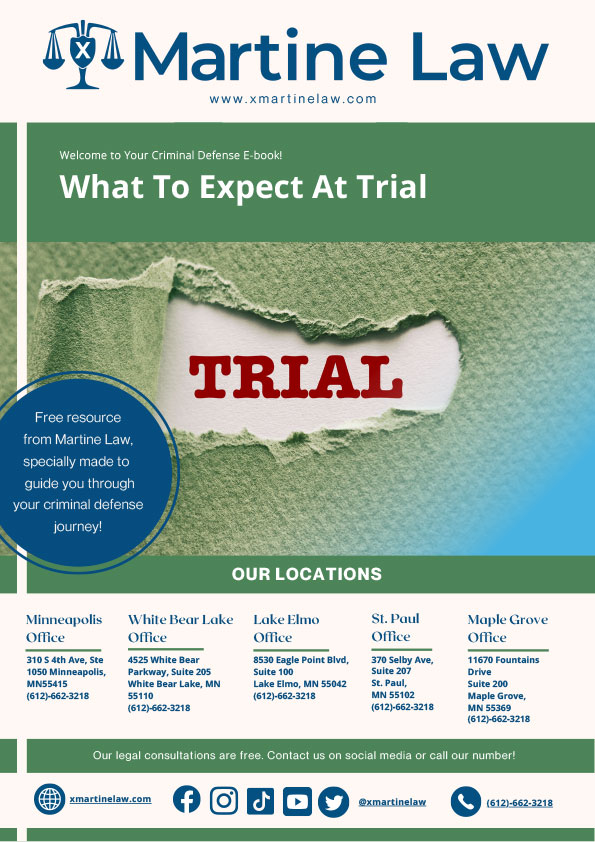Petty Theft (Misdemeanor)
Up to 90 days
Up to $1,000
Simple Assault (Misdemeanor)
Up to 90 days
Up to $1,000
DWI 1st Offense (Gross Misdemeanor)
Up to 1 year
Up to $3,000
2nd Degree Assault (Felony)
Up to 7 year
Up to $14,000
1st Degree Burglary (Felony)
Up to 20 year
Up to $35,000
2nd Degree Murder (Felony)
Up to 40 year
No maximum fine
Possession of a Controlled Substance (Felony)
Up to 5 years
Up to $10,000
Aggravated Robbery (Felony)
Up to 20 years
Up to $35,000
Criminal Sexual Conduct (Felony)
Varies (potentially life)
No maximum fine
Felony Theft (Felony)
Up to 20 years
Up to $100,000
Manslaughter (Felony)
Up to 15 years
Up to $30,000
Arson (Felony)
Up to 20 years
Up to $20,000
Kidnapping (Felony)
Up to 40 years
Up to $50,000
Embezzlement (Felony)
Up to 20 years
Up to $100,000
Forgery (Felony)
Up to 3 years
Up to $5,000
Identity Theft (Felony)
Up to 20 years
Up to $100,000
Vehicular Homicide (Felony)
Up to 10 years
Up to $20,000
Money Laundering (Felony)
Up to 20 years
Up to $500,000
Perjury (Felony)
Up to 5 years
Up to $10,000
Extortion (Felony)
Up to 20 years
Up to $35,000
